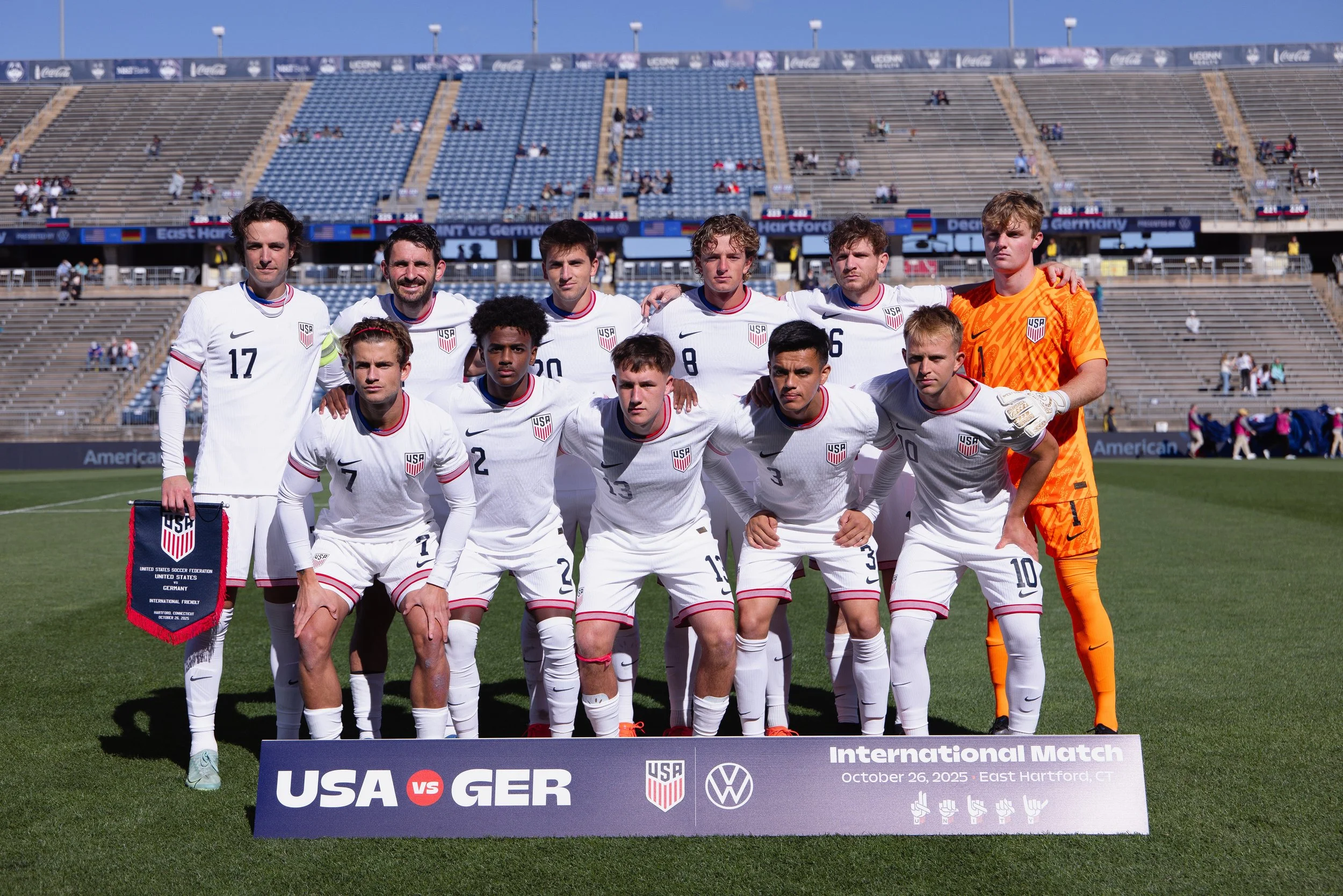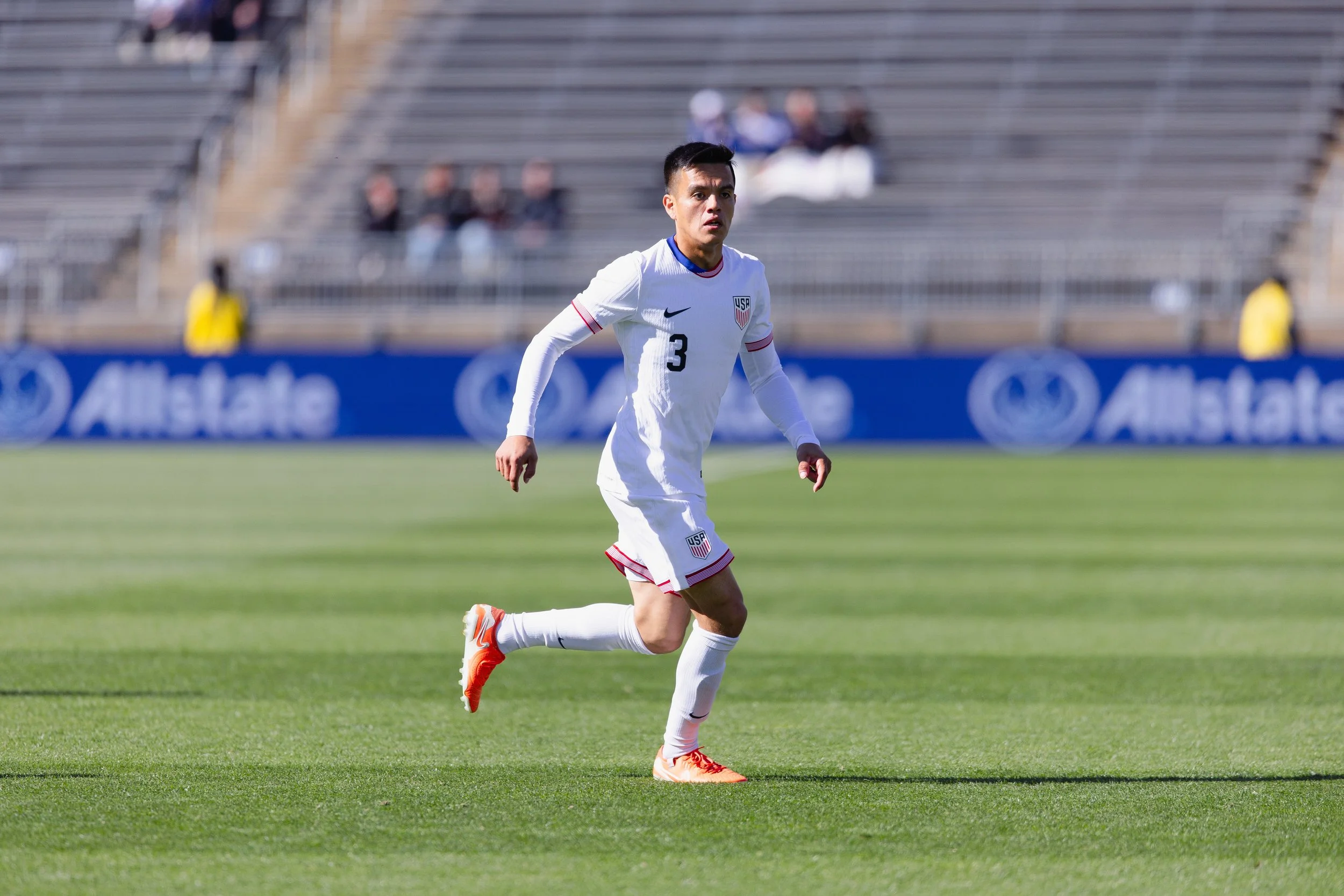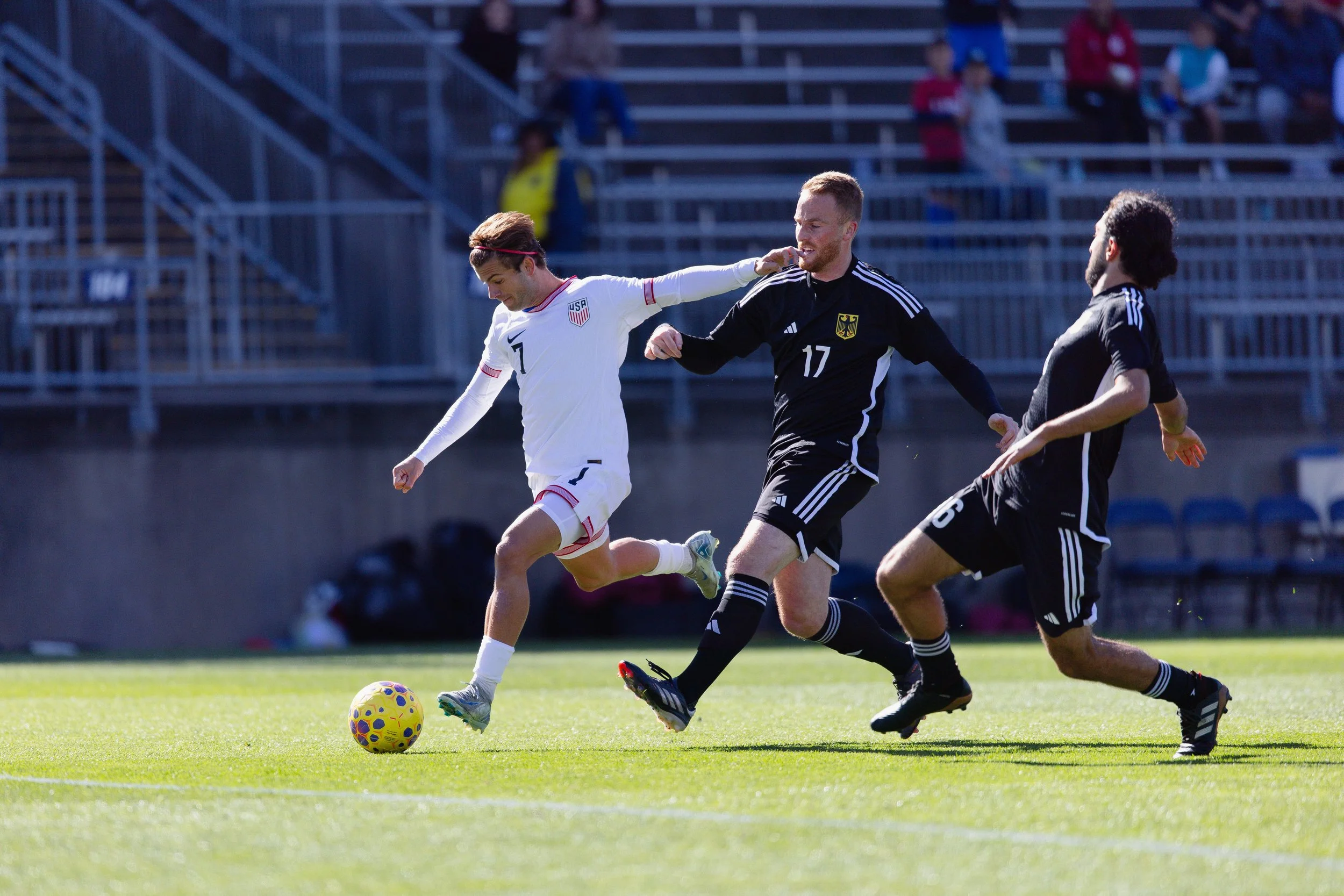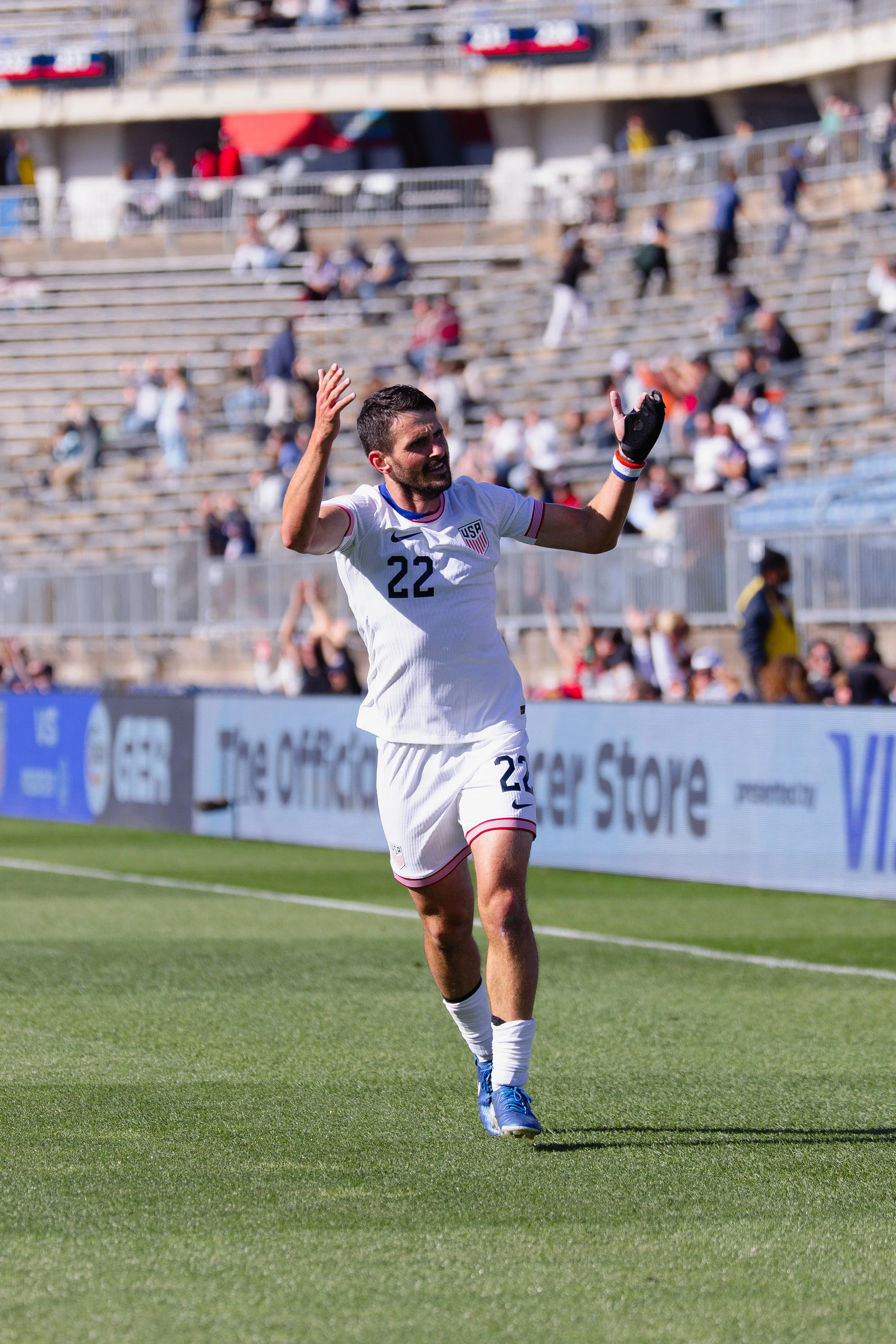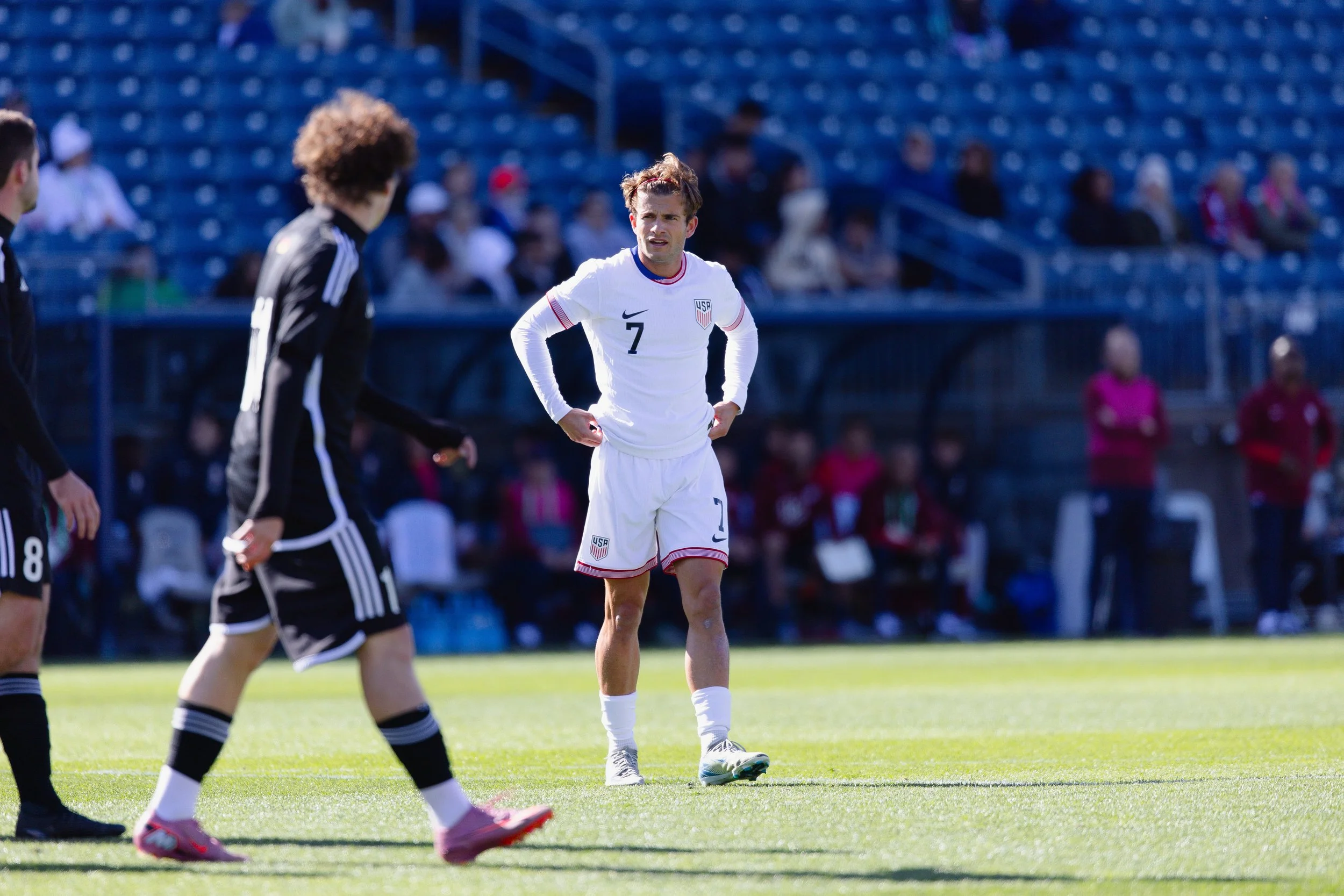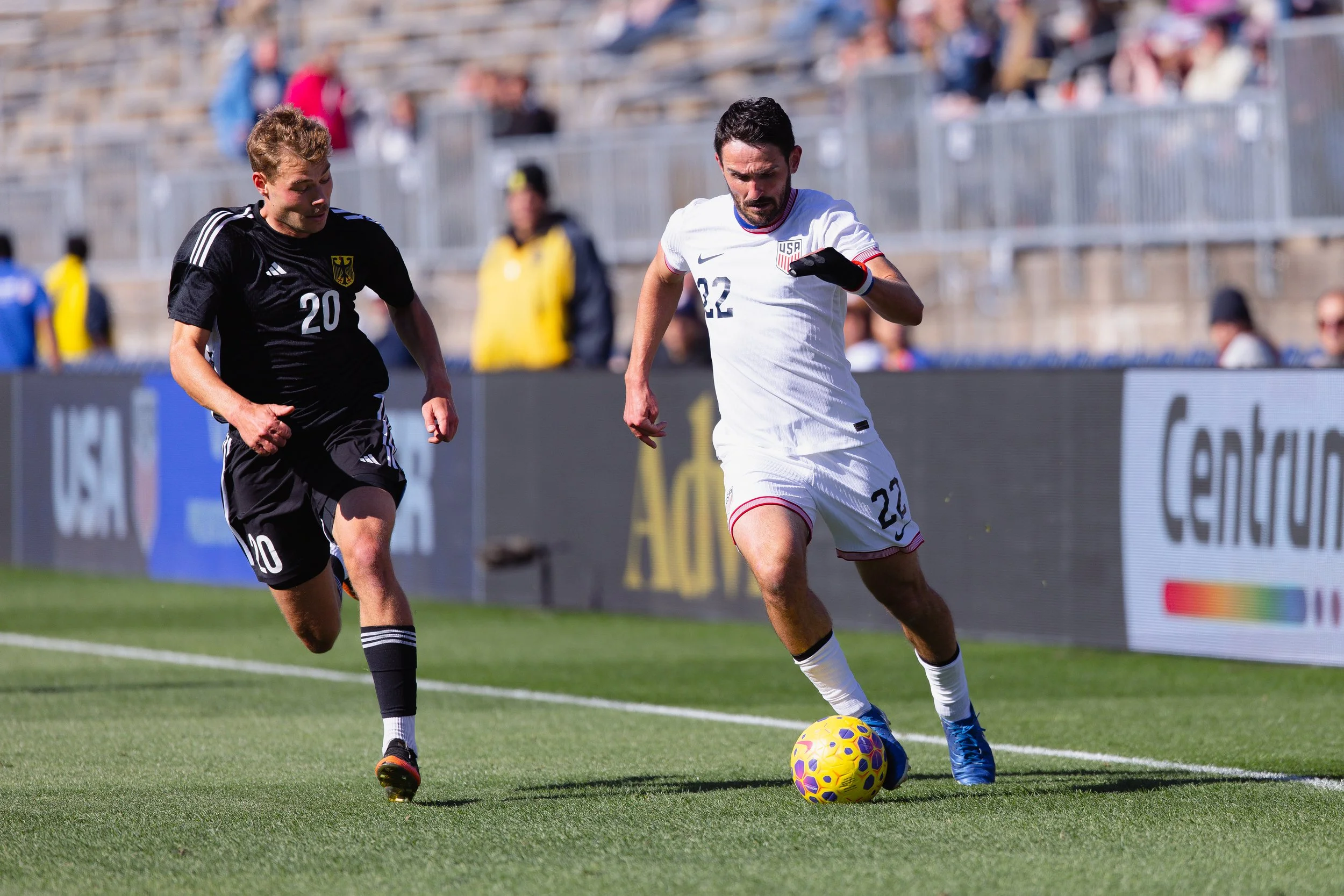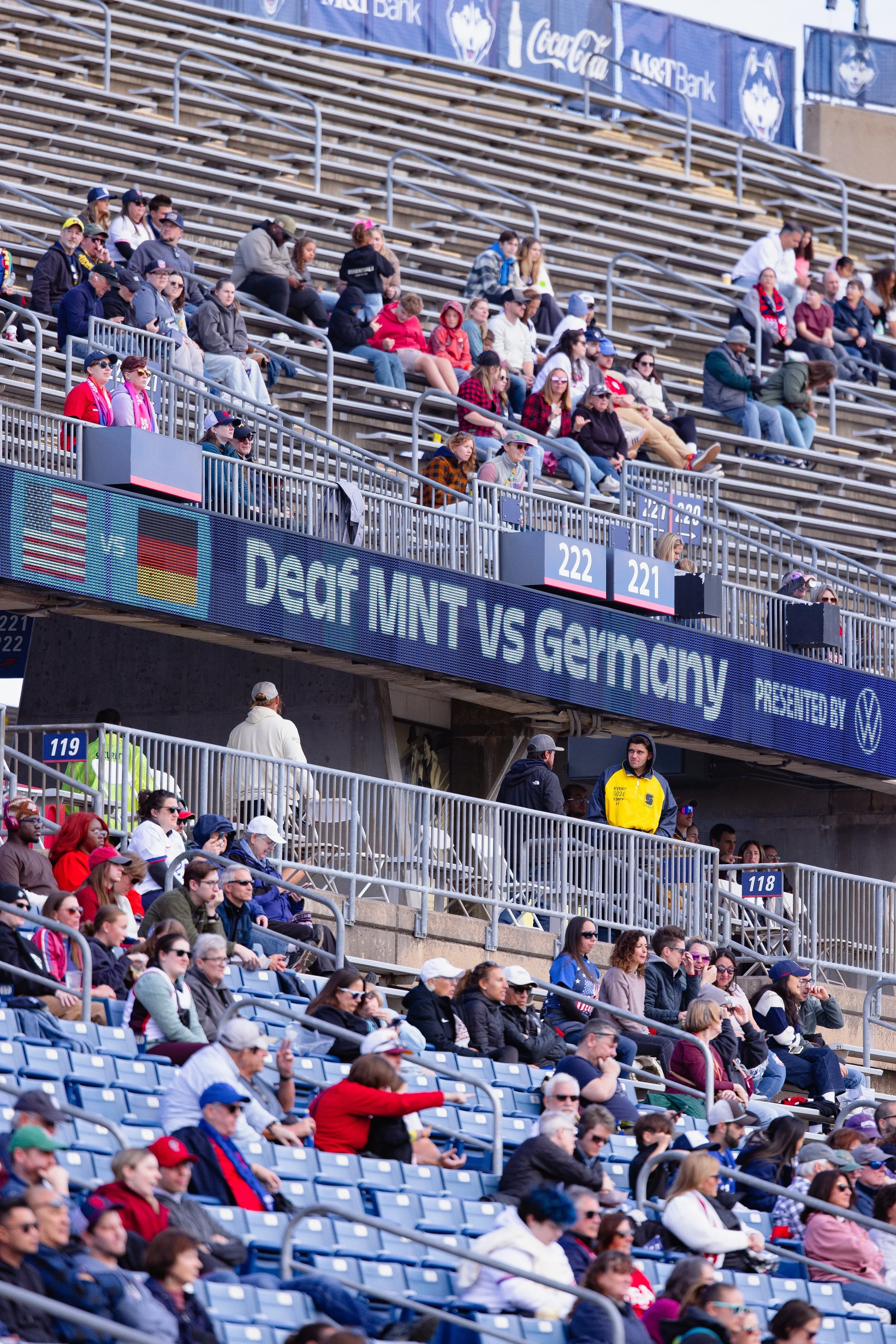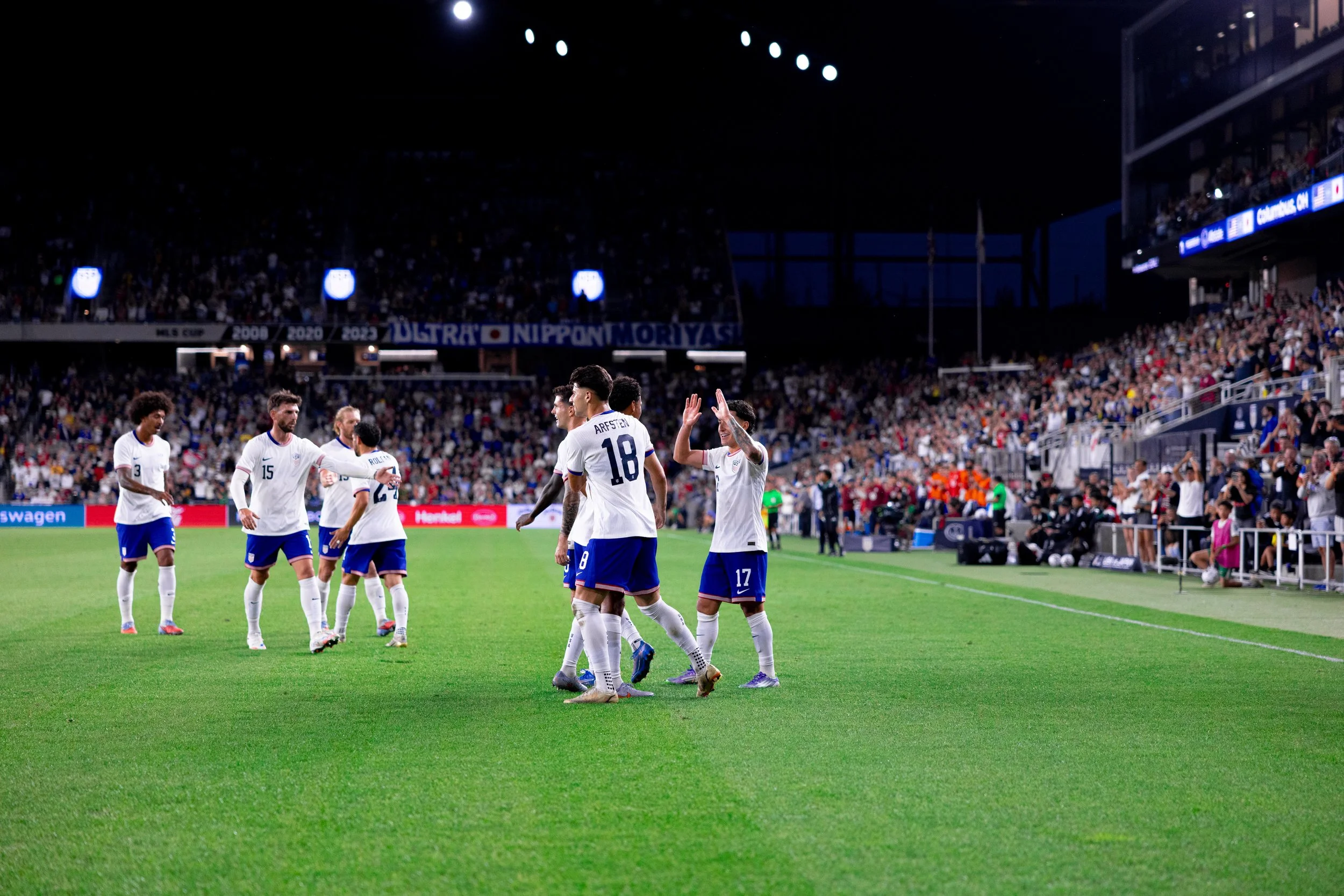US Men's Deaf National Team vs Germany
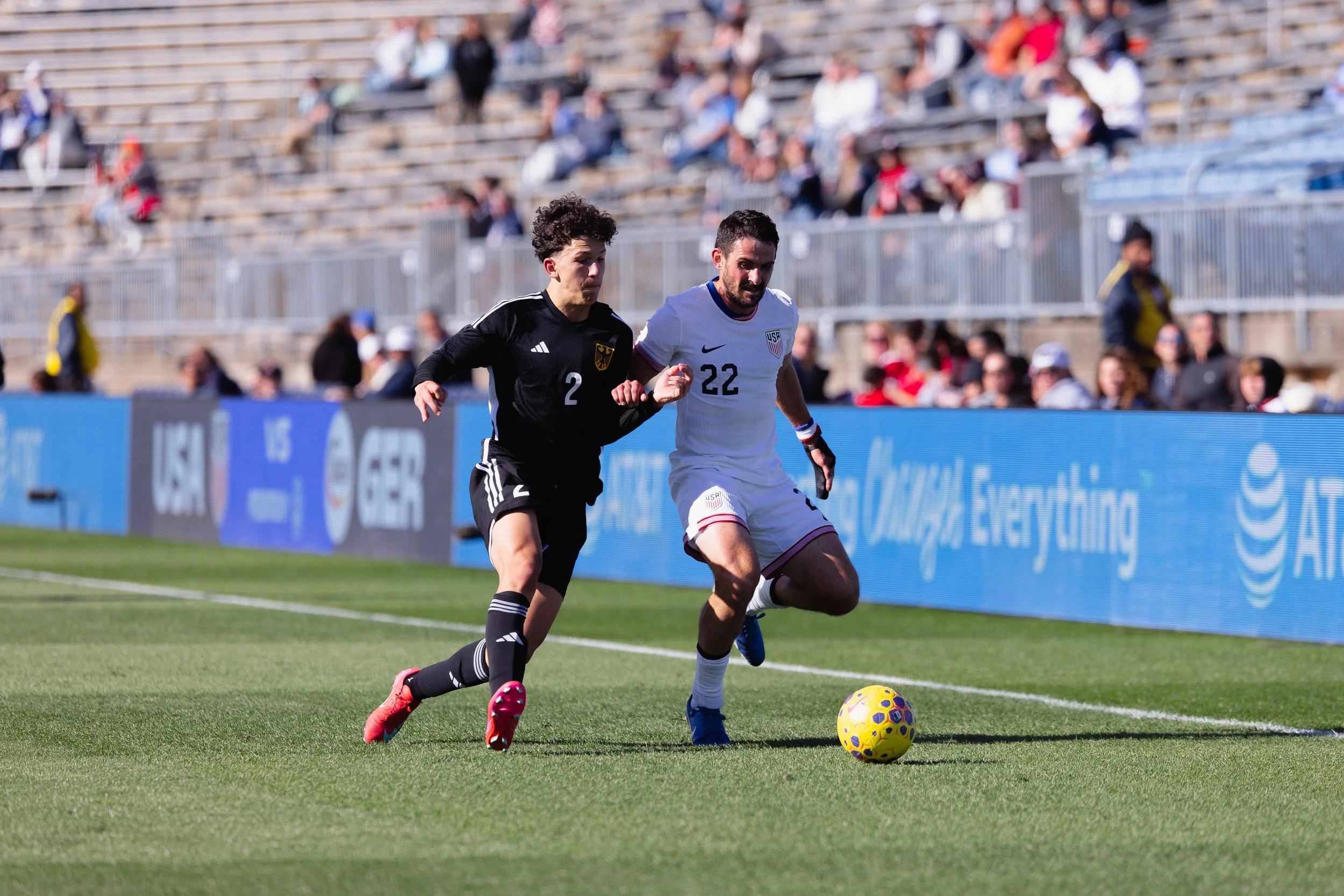
This was one of those games that will surely stand the test of time — not necessarily because of the result, but more because of the impact it will have for generations to come. A win worth more than words can capture. The US Men’s Deaf National Team earned its first-ever victory against Germany, in a landmark, nationally televised doubleheader with the USWNT. It was the perfect way to send off the squad ahead of the 2025 Deaflympics next month, and more importantly, show the country what this team is capable of. One that not too long ago, used to rely on donations, neighborhood fundraisers, and countless personal sacrifices just to compete on the international stage. A triumph for all those in this country turning the idea that “soccer is for everyone,” into a reality.
Photography by: Brandon Koodish
It was a match that meant more than just the scoreline. On a sunny afternoon in East Hartford, the U.S. Men’s Deaf National Team capped off its Deaflympics send-off in style, earning its first-ever win over Germany with a 3–1 victory at Pratt & Whitney Stadium — a landmark moment in more ways than one.
As part of a historic doubleheader with the U.S. Women’s National Team, the match marked a significant step in U.S. Soccer’s ongoing effort to elevate its Extended National Teams and spotlight the diverse athletes who represent the nation on the world stage.
From the opening whistle, the Americans set the tone. The U.S. pressed high, harassing Germany into mistakes and pouncing on transition chances. Their breakthrough came in the 18th minute, when 2023 U.S. Soccer Male Deaf Player of the Year Chris Bourdon burst down the right flank and served a pinpoint ball across the box. Twenty-year-old Samson Abraham, making just his fifth international appearance, met it with the outside of his right foot to open his U.S. account.
Before halftime, the pattern repeated itself — another electric run from Bourdon, another clinical finish. This time, the veteran winger danced past three defenders and laid it off for Michael Schmid, who slotted home his 14th career goal to double the lead.
Germany, unbeaten against the U.S. in their previous five meetings, struck back just after the restart. Jonathan Sedlmayer curled in a teasing free kick that found captain Robin Bayer unmarked at the penalty spot, his header cutting the deficit to one. But the U.S. response was immediate and emphatic. Two minutes later, captain Tate Lancaster smashed home a rebound from a corner to restore the cushion and send the home crowd roaring.
The rest was equal parts grit and composure. Eighteen-year-old goalkeeper Sam Lang, making his international debut, stood tall with a series of reflex saves — including a highlight-reel kick stop to deny a German breakaway. Defender Raul Silva later cleared a goal-bound effort off the line to preserve the two-goal margin.
Bourdon, whose relentless energy defined the U.S. attack, nearly added a goal of his own in the 75th minute when his shot clattered off the post. But by then, the result was all but sealed.
For head coach and players alike, the win represented more than a positive send-off — it was validation. A decade in the making, this first victory over Germany symbolized how far Deaf soccer has come in the U.S., both in visibility and competitive stature.
Next up: Tokyo. The U.S. will open Deaflympics play on Nov. 16 against Ukraine, followed by Senegal on Nov. 18. The goal is clear — to bring home a medal, and perhaps, another historic first.

